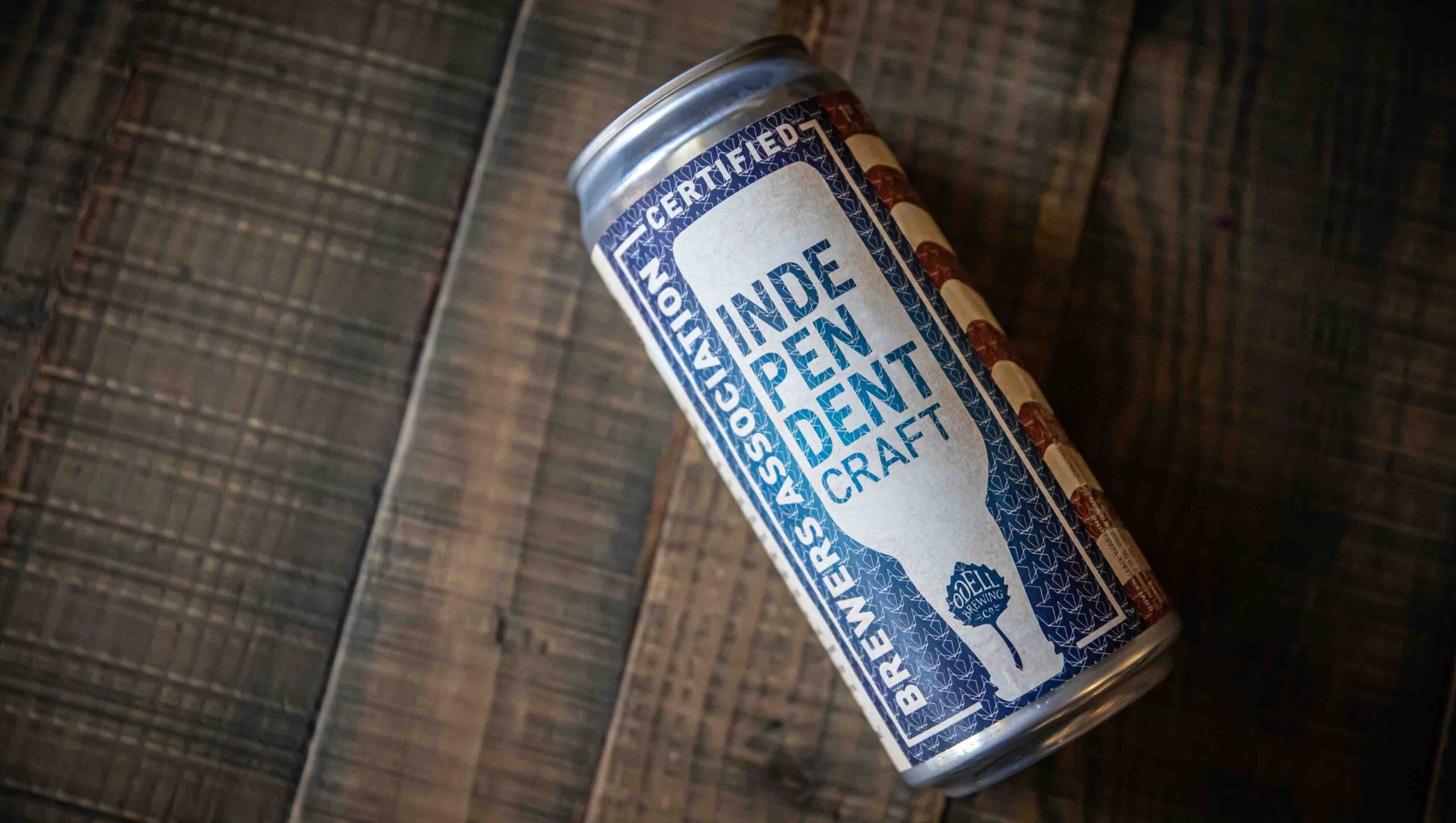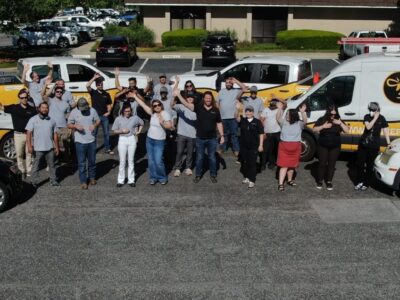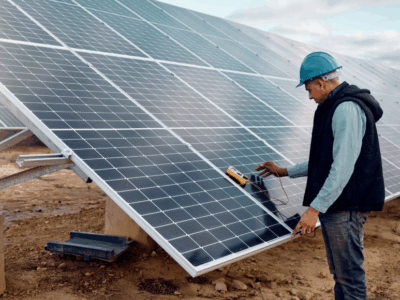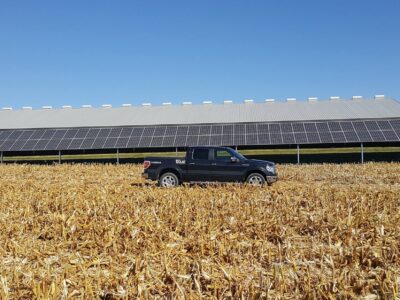Fort Collins, Colorado, is home to some notable landmarks: the Avery House, the Cache la Poudre River, Horsetooth Mountain, the 1883 Water Works, and Odell Brewing Company. This independent brewery was founded in 1989 by Doug and Wynne Odell and Doug’s sister, Corkie. Odell has a flagship brewhouse in Fort Collins and small-batch breweries in the Denver metro area.
The business is 100% employee-owned. In 2015, the Odell family sold the majority of their company to the employees. The workers now own stock and have helped enhance the craft beer experience in the process.
A Brewery’s Origin Story
Doug Odell started brewing in the 1970s when he got a job at Anchor Brewing, the famous San Francisco brewery. He scrubbed the mash tun, where all the grain for brewing is to turn the starch into sugar for the fermentation process. Doug began homebrewing after his time at Anchor. He moved to Seattle in 1981, where he would meet Wynne and create a few lines of his own beer.
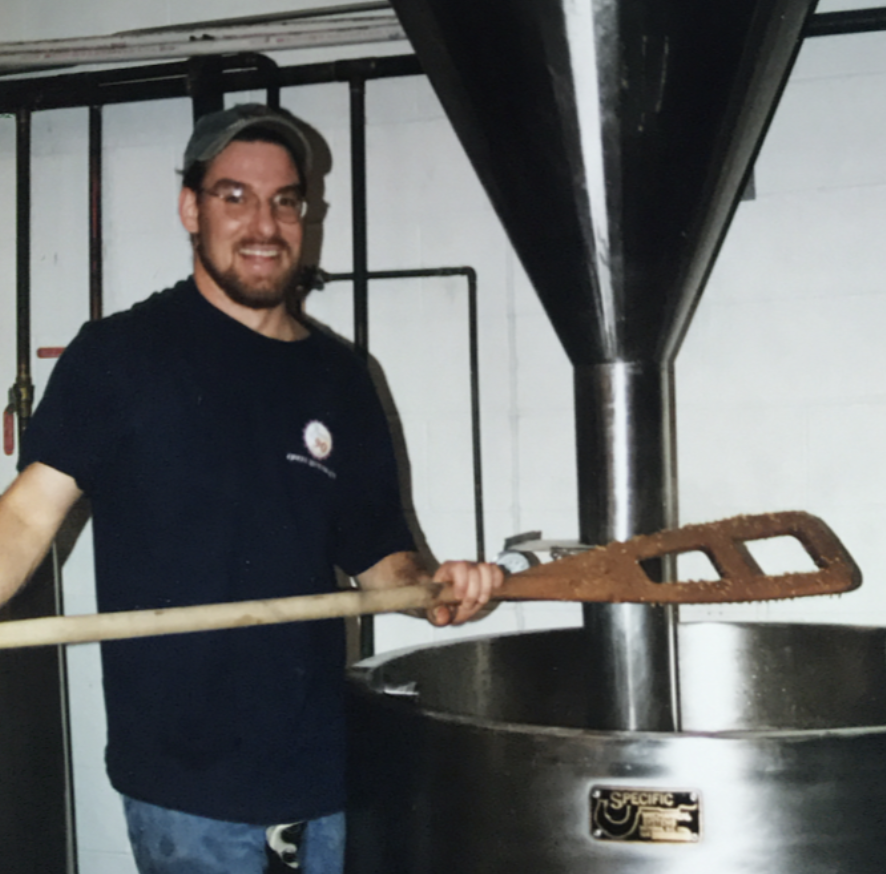
Photo Courtesy Odell Brewing Co
Doug and Wynne got married in 1985. They spent their honeymoon in the United Kingdom. The couple visited many small breweries, sampling many different ales. It was at this moment Doug realized he wanted to own a brewery.
The craft beer scene in Seattle in the 80s wasn’t at the level it is today. Doug’s sister, Corkie, was living in Fort Collins and suggested her brother and sister-in-law come to Colorado. Fort Collins is home to Colorado State University. College towns and breweries are a good match, and the brewery opened its doors in 1989.
The first brewery was located in a 1915 grain elevator. The location has since moved just a few blocks away.
The first commercial release was Odell’s Golden Ale, followed by the 90 Schilling Ale, an amber ale named after the Scottish method of taxing the highest quality beer.
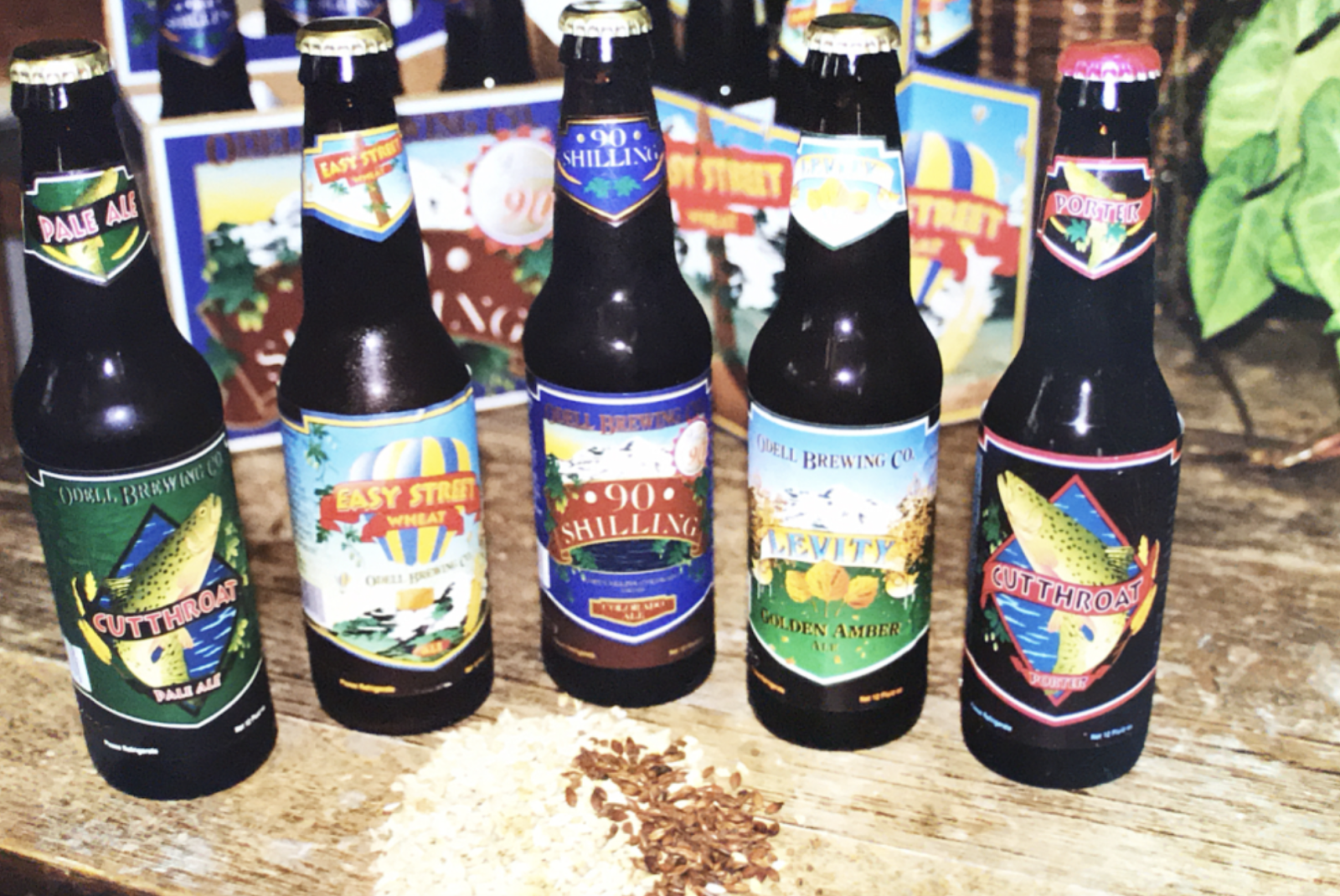
Photo Courtesy Odell Brewing Co
“Sometimes we can believe it’s been 30 years,” the co-founders said on the Odell website. “When you have something as good as we’ve had at our brewery, life just flows.”
Sustainability On Tap
The company cares deeply about the environment and considers it in its brewing process. Water savings in beer brewing is tricky, but Odell has improved its system to only use 3.4 gallons of water compared to the seven needed for one gallon of beer. A custom vacuum pump that seals the bottles reuses water, saving up to 1.25 million gallons a year.
Grey water is used for the first rinse of the fermentation tank. The beer is filtered with a centrifuge, using less water and eliminating diatomaceous material or material made from fossilized remains of tiny aquatic organisms. The centrifuge filtration also preserves hop oils, which Odell claims makes the beer taste better.
Solar power is used in the brewing process. The brewery has more than 11,000 square feet of solar panels, covering 4% of its total electricity.
Solatube Lights built with special materials strengthen the sunlight, increasing the natural light and reducing reliance on overhead lighting.
The beer kettle has steam recapture during every boil to reuse steam to heat the water for new batches. A carbon dioxide (CO2) recapture system was installed in 2023, taking CO2 from fermentation and reusing it in carbonation and packaging. It saves 1.4 million pounds of carbon emissions, the brewery says.
Odell also helps fund Fort Collins municipal green energy projects to increase the use of renewables in the electrical grid. The brewery also has installed electric vehicle charging stations that allow public use.
Philanthropic Work And Collaboration
Odell is involved in several philanthropic ventures. The company thrives on a three-pillar philosophy: humanity, equity, and environment.
The brewery has contributed money and a helping hand to various nonprofits, volunteered more than 2,000 hours of community service, and hosted more than 50 fundraisers annually.
Patagonia and Odell have also worked together on the Kernza Lager. The beer is made with Kernza, an organic regenerative grain that’s soil-saving and requires little to no tilling for harvesting. Not many breweries use organic brewing materials.
Patagonia has tapped several craft breweries throughout the U.S. to promote environmental awareness about the toll grain farming has. The goal is to improve soil health while offering people high-end Kernza products like pasta and beer. Kernza is high in protein, fiber, and other vital nutrients.
Growing Kernza can rebuild topsoil health, prevent erosion, and protect groundwater thanks to its deep roots in the ground. The roots nourish microbes that improve soil health. It also soaks up nitrogen, which is harmful to aquatic life, before it can reach groundwater. Reduced tilling also protects the soil and keeps the topsoil in place. Other grains like rice, wheat, and corn require tilling and replanting.
Combatting climate change while having a cold one — now, that’s something to raise a glass to!

